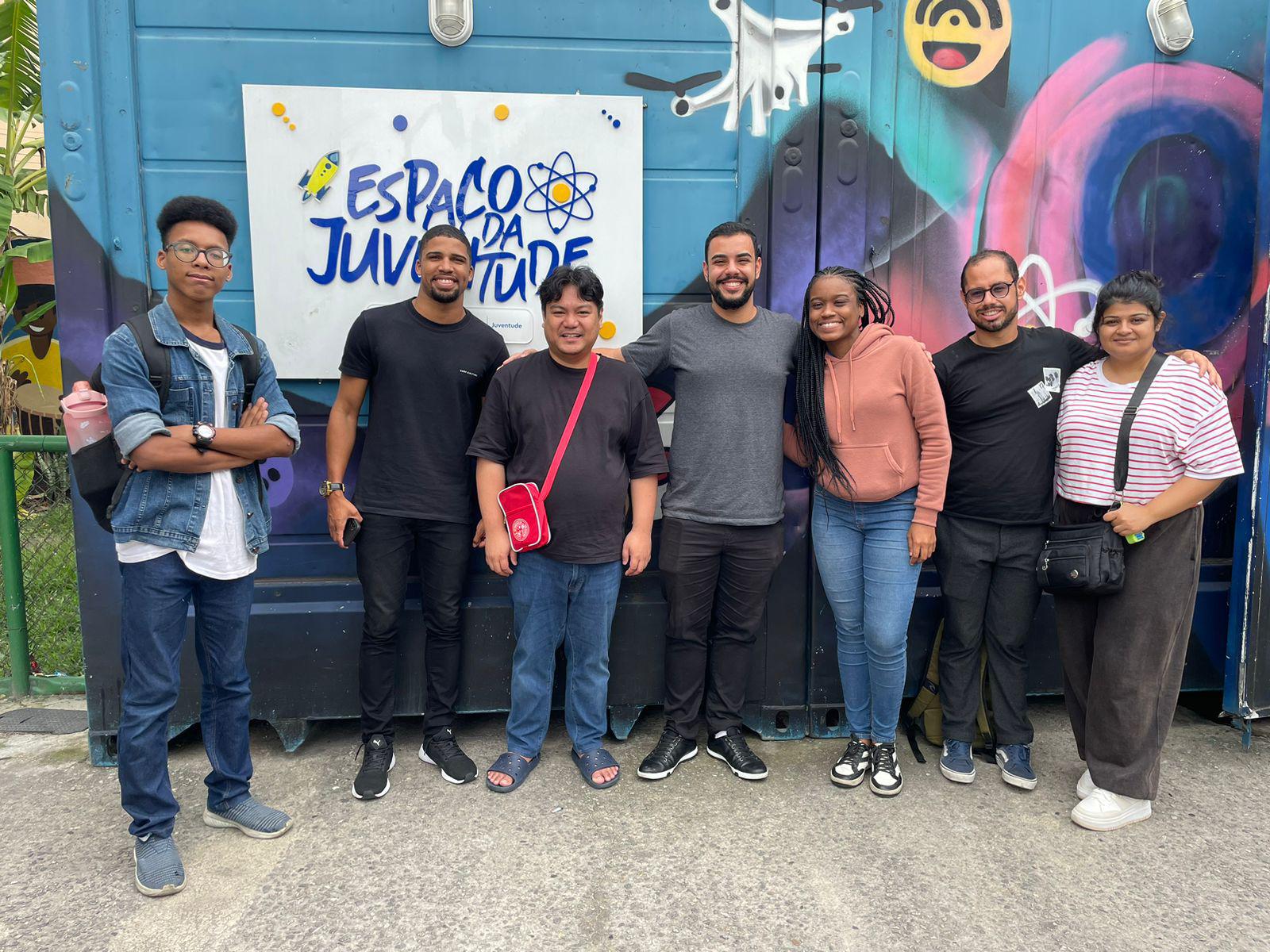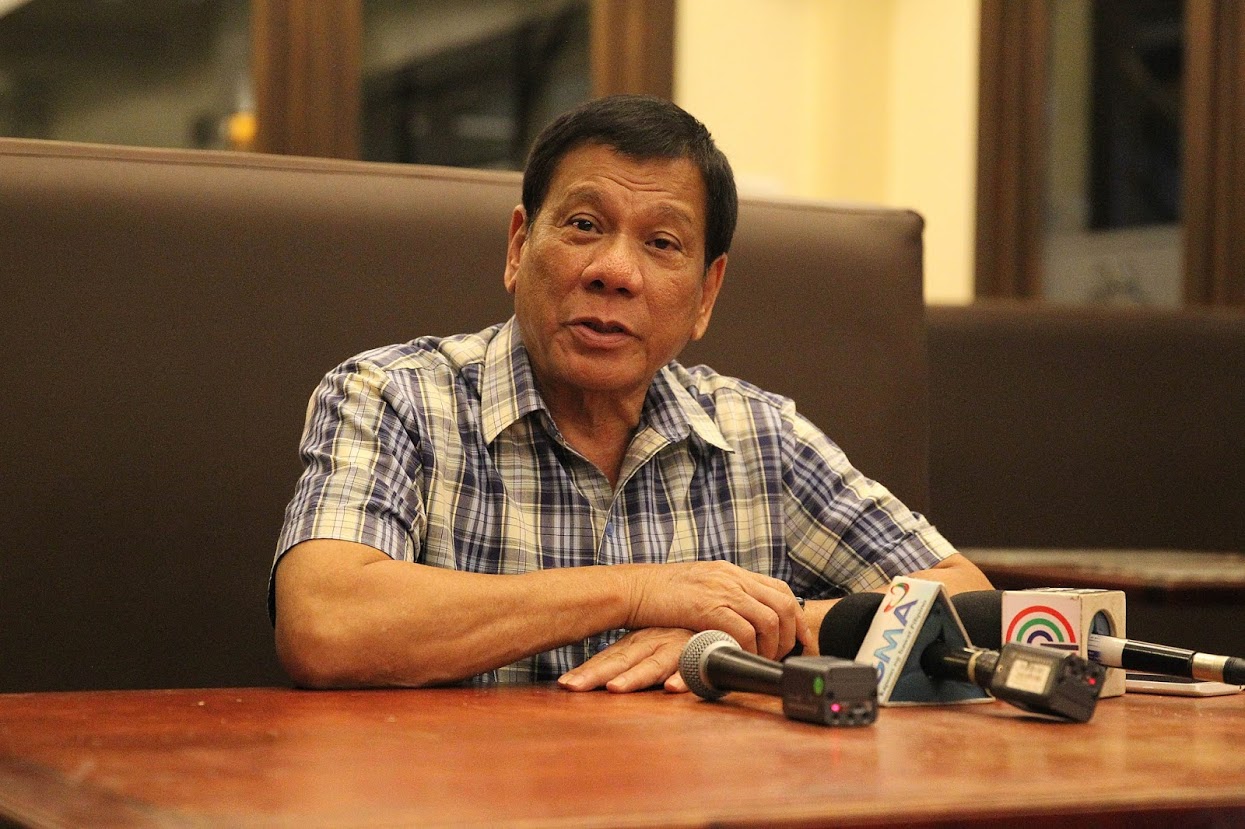By Miguel Paolo Rivera, Rashmi Guha Ray, and Dr Wagner Guilherme Alves De Silva *
DEEPLab’s project on flexible work and rigid politics in Brazil, India, and the Philippines gave us the opportunity to converge in Rio de Janeiro and interact with experts on platform work in Brazil. We were also able to witness how communities were influencing and transforming the idea of platformisation. This trip gave us the chance to share our own experiences from the Philippines and India, ushering forth conversations on what platform economy means for the Global South.
Fundamentally, our trip to Brazil revealed an aspect of the platformisation of labour: despite its local specificities, it follows a distinct internal logic—one that adapts to different settings across the Global South but remains structurally consistent.
The idea that digital platforms connect different social classes, countries, and geographies is a common narrative in discussions about the platformisation of everyday life. However, this perspective often overlooks the contradictions and tensions that emerge from platform labour. In Rio de Janeiro, our engagement with various specialists and exploration of the local political history allowed us to reflect on the complex relationships between informality, labour precarity, and the expansion of digital platforms.
Central to our conversations were platforms such as iFood and Uber (Brazil), Grab and Foodpanda (Philippines), and Zomato and Swiggy (India). Professor Bruno Cardoso, one of our contact persons at the Federal University of Rio de Janeiro, highlighted two important aspects of platformisation in the Global South. First, these platforms operate a monopoly or duopoly of food delivery app services. Across our respective home countries, in Brazil, India, and the Philippines, these platforms have dominated the market and had virtually monopolised food delivery.
Second, Cardoso describes these platforms as being ‘opaque’ in their operations. Information on how these platforms work, such as specifics on how they calculate prices, wages, and algorithmic priorities remain a mystery to both their riders and the customers. Everyday disputes between the company and riders or customers are handled by agents affiliated with third parties. Riders across these countries face continuous state surveillance and threats of police violence as they carry on their duties. The informalisation of labour relations and the consolidation of on-demand work have resulted in a model where workers have little to no predictability regarding their wages and working conditions (ABÍLIO, 2021). This precarisation is further exacerbated by the opacity of digital platforms, which algorithmically regulate earnings and task allocation without transparency (ABÍLIO et al, 2021) . Moreover, the absence of formal employment ties leaves workers vulnerable to arbitrary disputes, state surveillance, and third-party mediation without guarantees of protection.
Professor Cardoso also pointed out that, besides opacity, there is an appropriation of the technology by criminal organisations or for the purposes of illicit activities that puts in place a system of threat and intimidation to ensure that the workers never protest against the shifts allocated to them or working conditions, a phenomenon he referred to as ‘militiafication’. Food delivery partners in Brazil, India and the Philippines, while expressing deep disgruntlement against their respective platforms have not expressed fear of physical harm, something platform workers in Brazil reportedly do.
The algorithmic control of time, worker penalties for delays, and unexplained account suspensions are common forms of platform control. According to Aline Gama from the Rio de Janeiro State University (UERJ), many iFood workers reported temporary account blocks without explanation. Requests for clarification were often ignored or met with vague responses. Similar cases have been reported from the platforms in both the Philippines and India where shadow banning is a common passive punitive measure taken to ensure that the delivery workers toe the platforms’ policies. Platform offices in Brazil and the Philippines are inaccessible or unavailable in some areas. Thus, reaching a human operator is slow and difficult, making automated messages the primary and most accessible communication channel between workers and the platform. In India, food delivery partners often report having a team leader to whom they can make appeals or complaints but most of the times their pleas go unaddressed. The delivery partners also live in fear of ‘shadow bans’ in case of bad ratings or negative customer reviews.
Similar technical, legal, and ideological porosities appear in other aspects of platform labour. One of the most striking shared experiences across our countries is how platforms have reconditioned the mindset surrounding the (in)formalities of labour. Gabriel Ferreira argues that platformised domestic labour in Brazil embodies a paradox: while precarious, it is also perceived as a form of formal employment. For a historically informal sector, platforms like Parafuzzo represent the highest level of formalisation many workers have encountered. However, Ferreira highlights that this platformisation creates legal and regulatory opacities, obscuring precarity beneath a facade of legitimacy (Ferreira, 2023). In practice, the platform sustains precarious working conditions under the illusion of formalisation—one that is never fully realised.
Similar insights are in the studies of scholars such as Prof. Cheryll Soriano in the Philippines, where online influencers and workers have taken on “brokerage” dynamics with their audiences and networks. These new online brokerage systems have created a means to access what she calls as “ambivalent marginality” where workers are able to garner wages that make them non-poor but still precarious.
Bertolini et al.’s (2023) comparative study of platform-based gig work between UK and Bengaluru in India, states that the dichotomy between formality and informality does not exist in platform economy, especially in India and other parts of the Global South where government efforts have failed to generate enough employment opportunities, especially for the youth. This has given space to the platforms to present themselves as ‘revolutionising’ the labour market. The dichotomy arises from the fact that it is becoming increasingly difficult to argue that these informal sectors can be formalised as soon as the necessary steps are taken by the government. Moreover, ‘invisibility’ of workers, a key component of traditional informality, is not applicable in platforms where both visibility and invisibility coexist. Platforms track their workers or partners through the visibility of their routines in the app, a process embedded in an opaque algorithm that is invisible to both the workers and the consumers. Aditya Ray (2024) argues that the informality in the platforms of India is ‘digitally organised’ whereby the labour is algorithmically aggregated, controlled, and standardised via platforms, while the workers’ experience of precarity in gig economy remains highly informal because of the ambivalent relationship they share with the platforms and the state.
Despite the significant challenges these workers face, they develop strategies of resistance and mutual support. Dr Gama highlights everyday practices such as sharing portable chargers, exchanging traffic and work schedule information, and helping newcomers navigate platform work. Another one of our interlocutors, Renato Assad from the University of Sao Paulo, himself a former food delivery rider, now activist and graduate student, witnessed many examples of this “everyday solidarity”. Drawing from his experience in organising platform workers, Renato highlighted various expressions of solidarity, including the exchange of traffic information, logistical and operational support, and mutual care among colleagues. Their dispersion across the city enables them to construct a dynamic, real-time map of the urban landscape, allowing for a comparatively safer and more efficient navigation. This type of action not only demonstrates solidarity in an otherwise highly individualised and fragmented environment but also reflects a shared awareness of common challenges that may affect workers at different times. The high turnover of workers across multiple locations in the city initially presents obstacles to the formation of a cohesive community. However, social media platforms, particularly WhatsApp in Brazil and Facebook Messenger in the Philippines, serve as crucial tools for maintaining continuous interaction, creating a virtual space for the exchange of experiences and collective support. In India, delivery workers and ride-hailing drivers, while on duty, are frequently on group calls on WhatsApp with their ‘friends’ on the field, exchanging information about the flow of orders, traffic congestion, tips, or customer behaviour, often encouraging each other to see through the day and meet the daily target.
Nina Desgranges, Director of Research at the Institute for Technology and Society (ITS), introduced a project by the institute that amplifies workers’ voices. Through a dedicated podcast, workers share experiences, exchange information, and organise collectively, creating a space for solidarity and advocacy.
In the same direction, Carolina Gonçalves, a PhD student at Federal University of Rio de Janeiro (UFRJ), investigates how the ecosystem of mentorship programmes and social media follower networks shapes status and hierarchy among ride-hailing drivers in Rio de Janeiro. In conversation with our team, she highlighted a particularly intriguing finding: drivers’ persistent search for mentorships that help them understand the platform’s algorithm and maximise their earnings. Furthermore, this ecosystem includes access to specialised apps where drivers discuss traffic, violence, and safety risks, as well as exchange information on high-demand areas. Fascinating as this finding may be, our team found no equivalents in the context of India or the Philippines. The use of social media remains fairly limited, and although there is a substantial influencer market, it does not extend to the types of work analysed by the researchers in these two countries.
The key contextual difference appears to be the central role of social media in structuring cultural capital and the appropriation of profiles for professional purposes, a defining feature of Brazil. In the Filipino and Indian contexts, neither a mentorship ecosystem nor the perception of vlogging professional activities as an extension of work has been observed.
The comparative analysis of platformised labour in Brazil, India, and the Philippines reveals both structural commonalities and contextual specificities that shape workers’ experiences. Across these locations, digital platforms have established themselves as dominant intermediaries, driving labour precarity through algorithmic opacity, informality, and the absence of institutional protections. However, the dynamics of resistance and solidarity vary depending on the available social infrastructures and resources. In Brazil, for instance, social media plays a central role in building cultural capital and fostering worker organisation, whereas in India and the Philippines, digital mediation takes on more limited forms. In India, the platform labourers focus less on improving their skills or building socio-cultural capital and more on putting in more hours on the job to maximise income in a very labour-intensive economy.
These differences underscore the need for a situated approach to understanding platformisation in the Global South, taking into account both the transnational logic of these companies and the political, economic, and cultural conditions that shape their operations. Given this landscape, it is crucial not only to examine the impacts of these platforms but also to amplify workers’ voices and highlight their strategies of agency, resistance, and adaptation.
*Miguel Paolo Rivera is an ERC doctoral researcher at the UCD School of Geography. He is a lecturer at Ateneo de Manila University.
* Rashmi Guha Ray is an ERC doctoral researcher at the UCD School of Geography and member of DeepLab. She holds an MA degree in Conflict, Governance and Development from the University of York, UK, and an MA in History from Jadavpur University, India.
*Dr Wagner Alves da Silva is an ERC doctoral researcher at the UCD School of Geography. He has a PhD in Social Anthropology from the National Museum, Federal University of Rio de Janeiro.









